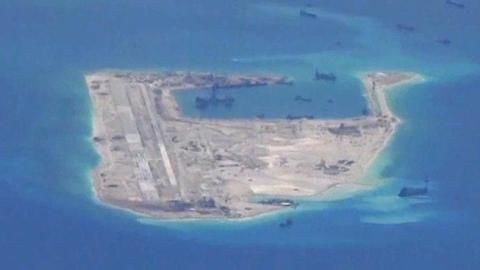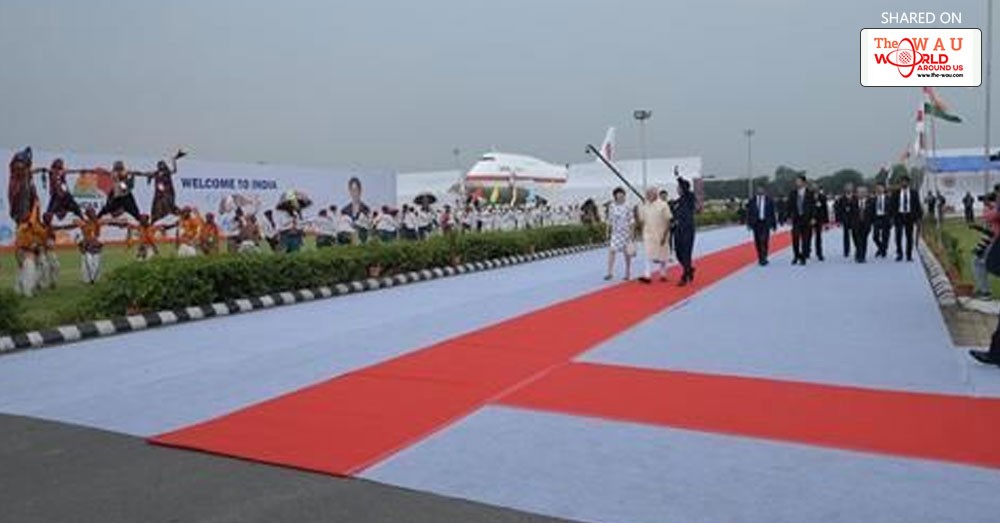Keeping China's expansionist tendencies in check is one of the common interests driving the India-Japan relationship.
Oddly enough, the Indo-Japan joint summit declaration issued during Japanese PM Shinzo Abe's recent visit to India omitted any mention of the South China Sea (SCS) dispute.
This careful omission comes amid the Trump administration's increasing indifference to the dispute.
Could India and Japan be reviewing their positions?
Why is this significant?
Declarations issued after the two previous Indo-Japan annual summits made specific references to the SCS and re-affirmed both nations' commitment to freedom of navigation. However, the current statement merely mentions a joint commitment to work towards peace and stability in the Indo-Pacific.

What is the South China Sea dispute about?
The South China dispute is over territory and sovereignty over ocean areas, particularly along the Paracel and the Spratly island chains.
These island chains are claimed by a number of countries in the region including China, Vietnam, the Philippines, Malaysia, Indonesia and Brunei.
The islands lie among the world's busiest shipping lanes and have vast mineral resources around them, making them highly strategic assets.
China claims 90% of the SCS
China claims 90% of the South China Sea based on the "nine-dash-line" drawn in the 1940s. It loops to a point about 1,800kms south of China's Hainan Island. Beijing has also built airstrips and military infrastructure on several disputed islands to enforce its claim.
Why the omission on SCS?
China worked with India to diplomatically resolve the Doklam standoff. For Japan, China assumes an important position in handling the nuclear threat from North Korea.
Both countries may have chosen a restrained language in light of China's importance in maintaining peace in their respective regions.
The Trump administration's indifference to the SCS dispute may have also guided the omission, stated strategic-affairs expert, Brahma Chellaney.
Is China consolidating power while the US dithers?
According to Brahma Chellaney, "The US has no desire to return to status quo in the SCS. As a result, China is consolidating its position in the SCS, even as the US symbolically undertakes freedom-of-navigation operations in the region."
Share This Post















